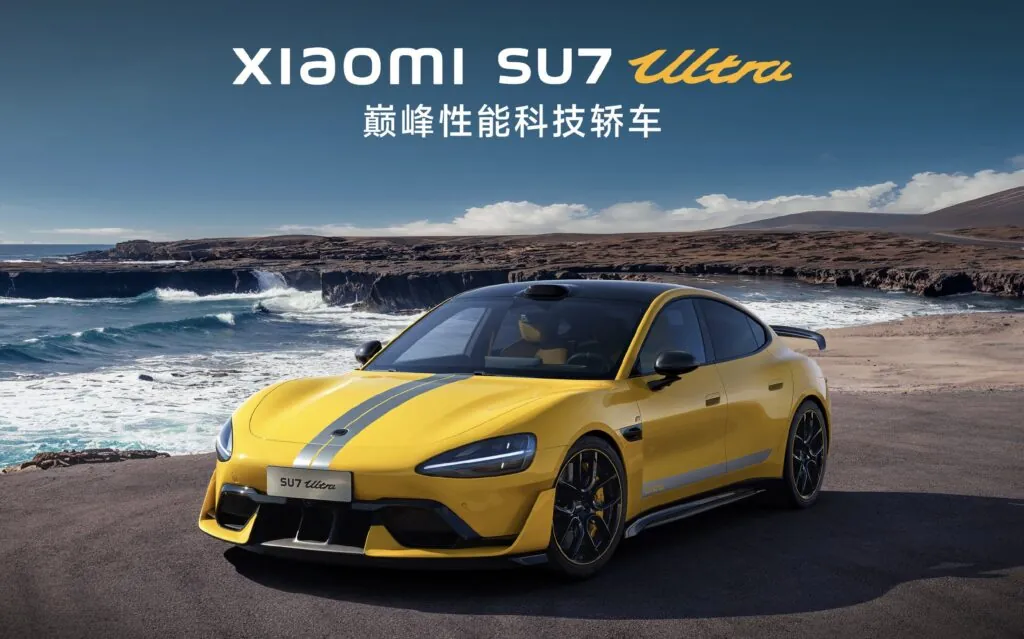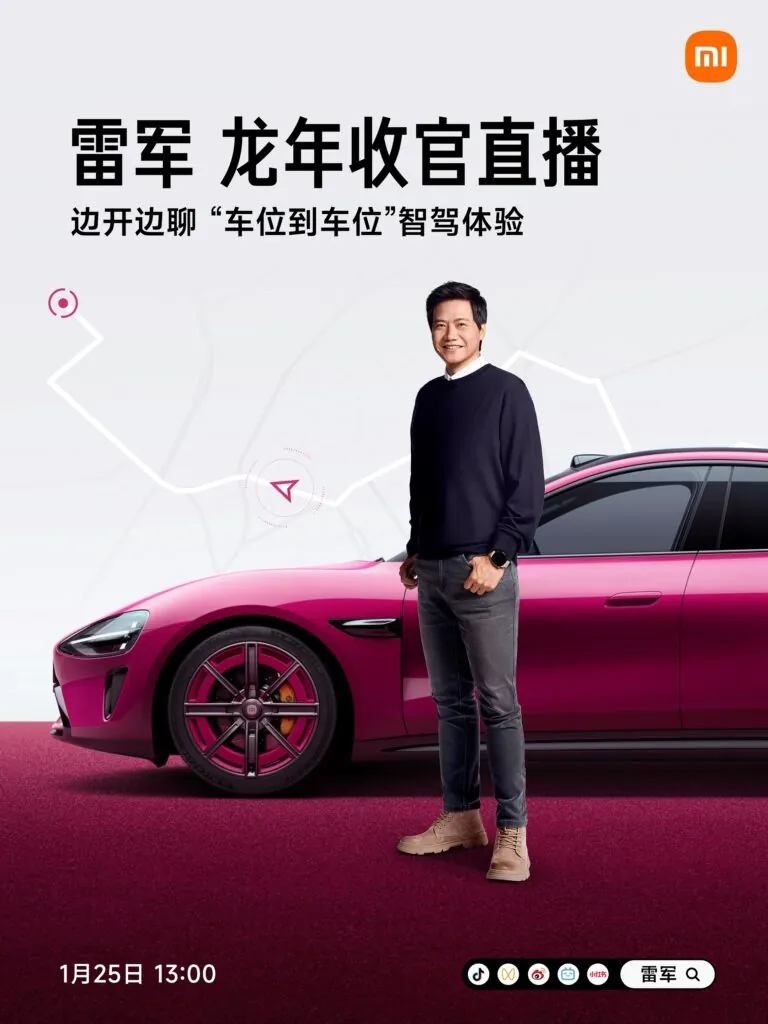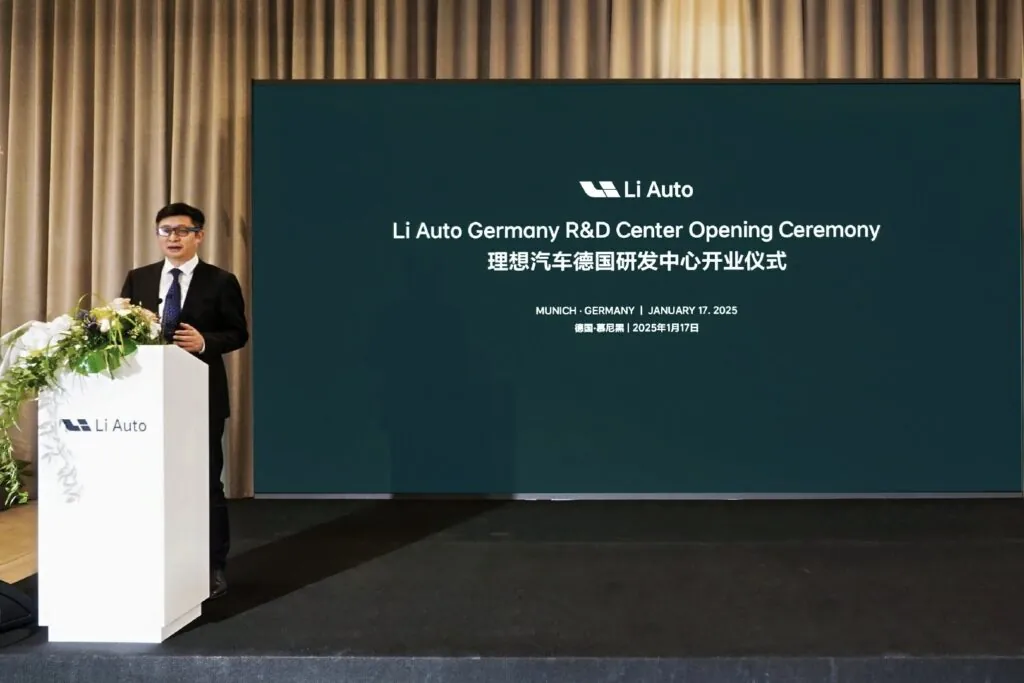From China becoming the first country to produce over 10 million “new energy” vehicles in a year and the surprise launch of the newly updated Tesla Model Y, to Xiaomi’s Lei Jun becoming a bigger livestreamer than Dong Yuhui, 2024 was a pivotal year for EVs in China. This applies to not only home-grown brands and Chinese-made vehicles but also for all brands competing in the Chinese market.

As we reach the end of the first month of 2025, it is important to examine the progress made in China regarding electric vehicles and smart driving, and possibly observe more trends that will emerge as the Chinese Year of the Snake approaches. This is in addition to the start of Trump’s second term as President of the United States, leaving the future of global trade and competition in limbo.
Battle of the China market
In the first month of 2025, two EV-related topics continue to pop up on Chinese social media, Tesla and Lei Jun, founder and CEO of Xiaomi. The recently launched Model Y from the American EV maker and Lei’s comment on the SUV made it to the Hot Search list on Weibo, China’s Twitter equivalent. However, stores have reported that the new Model Y has received waves of orders even though the displays are not yet on the showroom floor. Interestingly, Lei’s statement, “Apart from Tesla, all electric-only vehicles are losing money” also reached number 40 on the Hot Search list on Weibo with 6.36 million views.
Tesla and Xiaomi are both tech-centric EV makers, but the resemblance seems to end there
Tesla and Xiaomi are both tech-centric EV makers, but the resemblance seems to end there. Tesla has been referred to in the West almost exclusively as the brand of its deeply controversial owner, Elon Musk, in recent days, but in China, it remains focused on the merit of its product. Xiaomi, on the other hand is the opposite as it is known for its household appliances and smart home ecosystem in the West, but its founder and CEO is as much if not more on the mind of Chinese netizens as the brand itself or its EVs.

On Douyin, TikTok’s Chinese sister app, Lei reached number 3 on the list of ranking accounts that gained the most following on the platform with over 2.5 million new followers in 2024. The only entrepreneur in the top 50, Lei even beat Walking with Hui, star livestreamer Dong Yuhui’s new channel after leaving Oriental Selection.
Imports, exports
Lei Jun made the news again on 21 January by simply reposting the December electric vehicle sales ranking, as it shows that the SU7 sedan from Xiaomi had surpassed Tesla’s Model 3, with 25,815 to 21,046 units. Other Chinese EVs are also dominating the Chinese market in other categories or segments, such as Huawei and Seres’s AITO M9, which topped the list of cars priced in the 500,000 RMB (68,750.26 USD) range with its 150,000 units delivered. Conventional luxury car brands are now facing stiff competition in China.

With China-made cars from domestic and international brands like Seres, Xiaomi and Tesla, imported vehicles saw a huge decline in the past year. In 2024, only 700,000 vehicles, electric or petrol, were imported, dropping 12% year-on-year (YoY), marking the third consecutive year of decline. Meanwhile, sales of vehicles in the EU also saw a 5.9% YoY drop in 2024. This is partly due to Germany and other countries halting the subsidy of EVs in December 2023.

With Li Auto opening its first overseas R&D centre in Munich, Germany, on 17 January, and Mercedes-Benz Group CEO Ola Källenius’ calls on the EU to push for more Chinese EV brands to build manufacturing facilities in the EU and negotiating with Beijing over ending the tariffs on Chinese EVs, there might be more room for these domestic brands to grow as the Chinese market becomes increasingly crowded.
What’s next for Chinese EVs?
Källenius’ opinion might also stem from concerns over a potential trade dispute between the United States, China and the EU as Donald Trump begins his second term in the White House, with plans on inflicting tariffs on German cars and a 10% tariff on Chinese imports from 1 February.
It calls to question how much of a difference Tesla’s Full Self-Drive is going to make
More than just hardware vehicles, Chinese companies are also growing rapidly in the realm of smart self-driving or assisted-driving systems. The turn of the year saw two Chinese companies successfully going public at the Hong Kong Stock Exchange (HKEX), MINIEYE on 27 December and Saimo on 15 January. With Huawei and other tech companies aiming at this battleground, it calls to question how much of a difference Tesla’s Full Self-Drive is going to make when it rolls out in China in the first quarter of 2025.









